Russian writer Ivan Sergeevich Turgenev. Part 2. Personal life
Ivan Sergeevich Turgenev, 1872
Vasily Perov
Personal life
The first romantic passion of the young Turgenev was falling in love with the daughter of Princess Shakhovskaya - Catherine (1815-1836), a young poetess. The estates of their parents in the suburbs bordered, they often exchanged visits. He was 15, she was 19. In letters to her son, Varvara Turgeneva called Ekaterina Shakhovskaya a “poet” and a “villain”, since Sergei Nikolayevich himself, the father of Ivan Turgenev, could not resist the spell of the young princess, to whom the girl reciprocated, which broke the heart of the future writer . The episode much later, in 1860, was reflected in the story "First Love", in which the writer endowed some features of Katya Shakhovskaya with the heroine of the story, Zinaida Zasekina.
David Borovsky. Illustrations by I.S. Turgenev "First Love"
In 1841, during his return to Lutovinovo, Ivan became interested in the seamstress Dunyasha (Avdotya Ermolaevna Ivanova). An affair began between the young, which ended in the girl's pregnancy. Ivan Sergeevich immediately expressed a desire to marry her. However, his mother made a serious scandal about this, after which he went to St. Petersburg. Turgenev's mother, having learned about Avdotya's pregnancy, hastily sent her to Moscow to her parents, where Pelageya was born on April 26, 1842. Dunyasha was given in marriage, the daughter was left in an ambiguous position. Turgenev officially recognized the child only in 1857
I.S. Turgenev at the age of 20 years.
Artist K. Gorbunov. 1838-1839 Watercolor
Spasskoye-Lutovinovo
Shortly after the episode with Avdotya Ivanova, Turgenev met Tatyana Bakunina (1815-1871), the sister of the future revolutionary emigrant M. A. Bakunin. Returning to Moscow after his stay in Spasskoye, he stopped by the Bakunin estate Premukhino. The winter of 1841-1842 passed in close contact with the Bakunin circle of brothers and sisters. All of Turgenev's friends - N.V. Stankevich, V.G. Belinsky and V.P. Botkin - were in love with Mikhail Bakunin's sisters, Lyubov, Varvara and Alexandra.
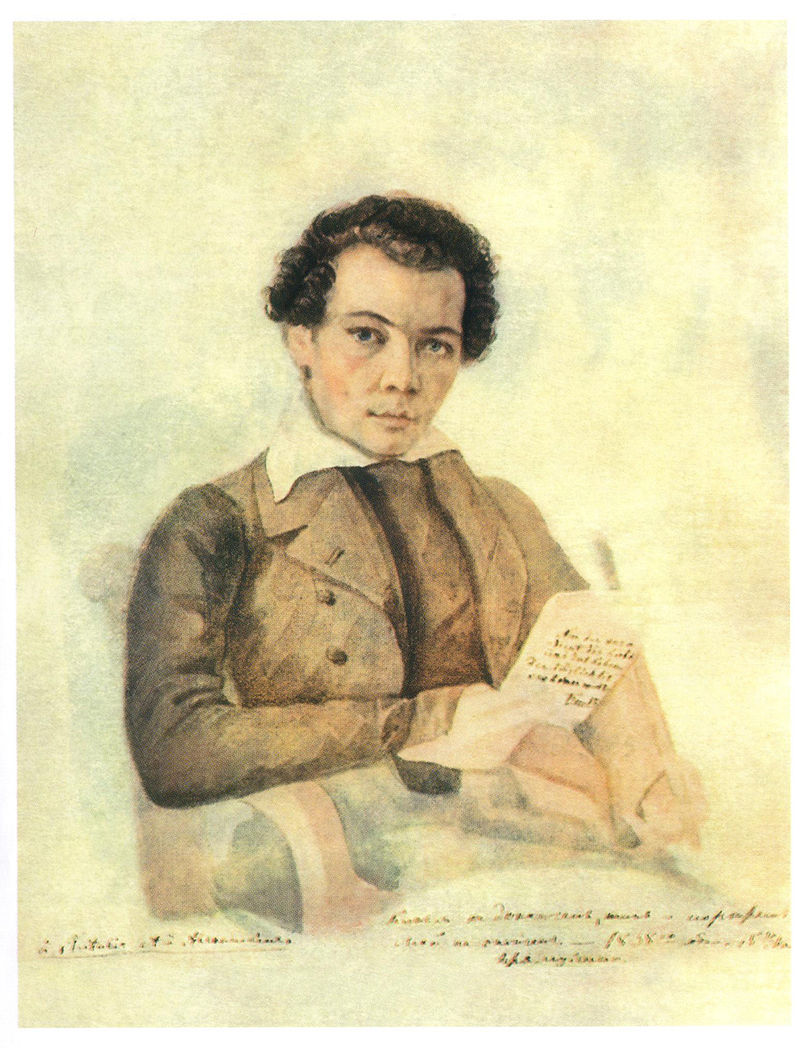
Watercolor self-portrait by Mikhail Bakunin.
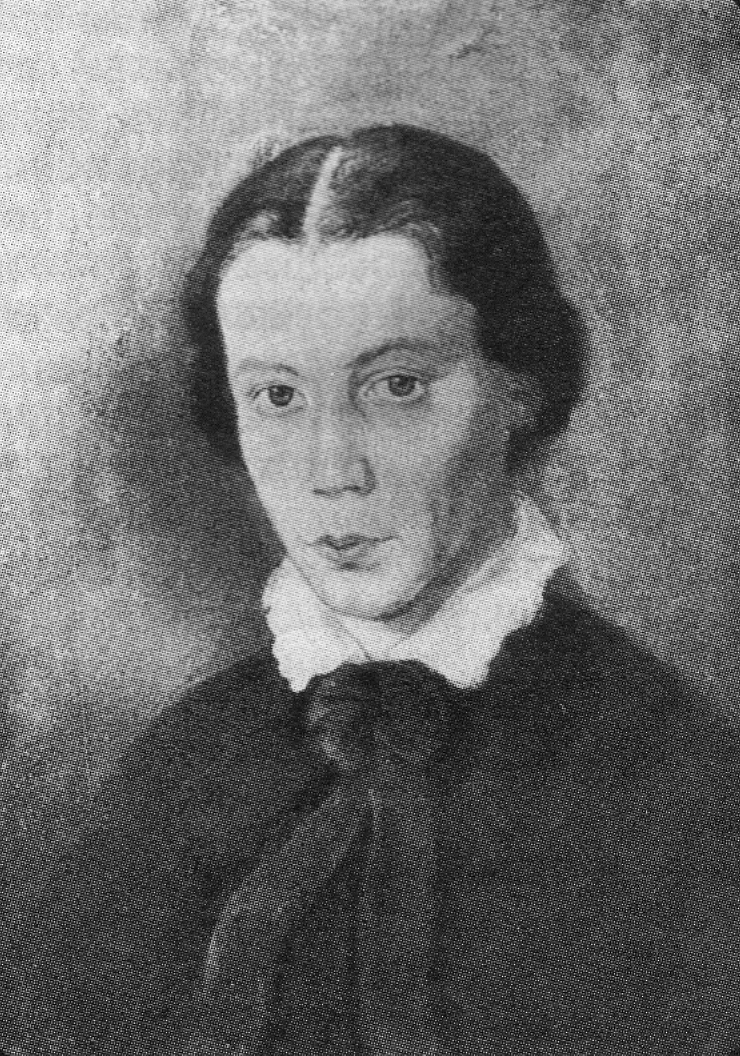
Bakunina Tatyana Alexandrovna
Evdokia Bakunina
Tatyana was three years older than Ivan. Like all young Bakunins, she was fascinated by German philosophy and perceived her relationships with others through the prism of Fichte's idealistic concept. She wrote letters to Turgenev in German, full of lengthy reasoning and introspection, despite the fact that young people lived in the same house, and she also expected Turgenev to analyze the motives of her own actions and reciprocal feelings. “The ‘philosophical’ novel,” according to G. A. Byaly, “in the vicissitudes of which the entire younger generation of the Premukhin’s nest took a lively part, lasted several months.” Tatyana was truly in love. Ivan Sergeevich did not remain completely indifferent to the love awakened by him. He wrote several poems (the poem "Parasha" was also inspired by communication with Bakunina) and a story dedicated to this sublimely ideal, mostly literary and epistolary passion. But he could not answer with a serious feeling.
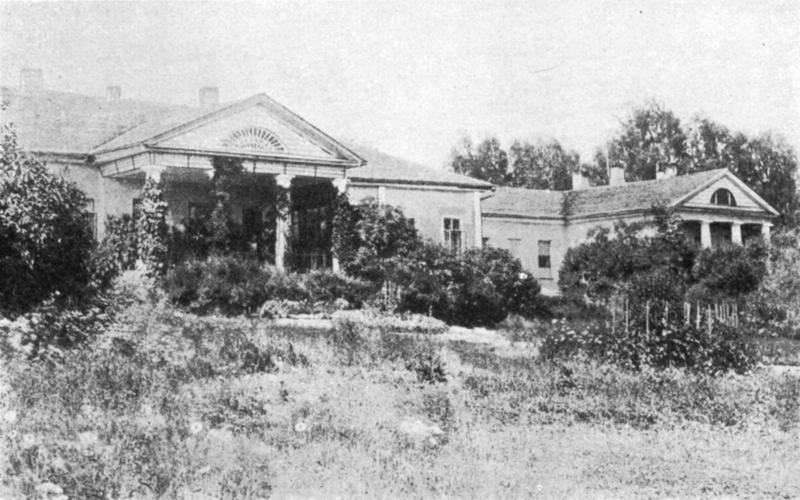
Bakunin's house in Pryamukhino
Among other fleeting hobbies of the writer, there were two more that played a certain role in his work. In the 1850s, a fleeting affair broke out with a distant cousin, eighteen-year-old Olga Alexandrovna Turgeneva. The love was mutual, and the writer was thinking about marriage in 1854, the prospect of which at the same time frightened him. Olga later served as a prototype for the image of Tatiana in the novel "Smoke". Also indecisive was Turgenev with Maria Nikolaevna Tolstaya. Ivan Sergeevich wrote about Leo Tolstoy's sister P. V. Annenkov: “His sister is one of the most attractive creatures that I have ever been able to meet. Sweet, smart, simple - I would not take my eyes off. In my old age (I turned 36 on the fourth day) - I almost fell in love. For the sake of Turgenev, twenty-four-year-old M. N. Tolstaya had already left her husband, she took the writer's attention to herself for true love. But Turgenev limited himself to a Platonic hobby, and Maria Nikolaevna served him as a prototype of Verochka from the story Faust.
Maria Nikolaevna Tolstaya
In the autumn of 1843, Turgenev first saw Pauline Viardot on the stage of the opera house, when the great singer came on tour to St. Petersburg. Turgenev was 25 years old, Viardot - 22 years old. Then, while hunting, he met Pauline's husband, the director of the Italian Theater in Paris, a well-known critic and art critic, Louis Viardot, and on November 1, 1843, he was introduced to Pauline herself.
Portrait of the singer Pauline Viardot
Karl Bryullov
Louis Viardot
Among the mass of fans, she did not particularly single out Turgenev, known more as an avid hunter, and not a writer. And when her tour ended, Turgenev, together with the Viardot family, left for Paris against the will of his mother, still unknown to Europe and without money. And this despite the fact that everyone considered him a rich man. But this time, his extremely cramped financial situation was explained precisely by his disagreement with his mother, one of the richest women in Russia and the owner of a huge agricultural and industrial empire.
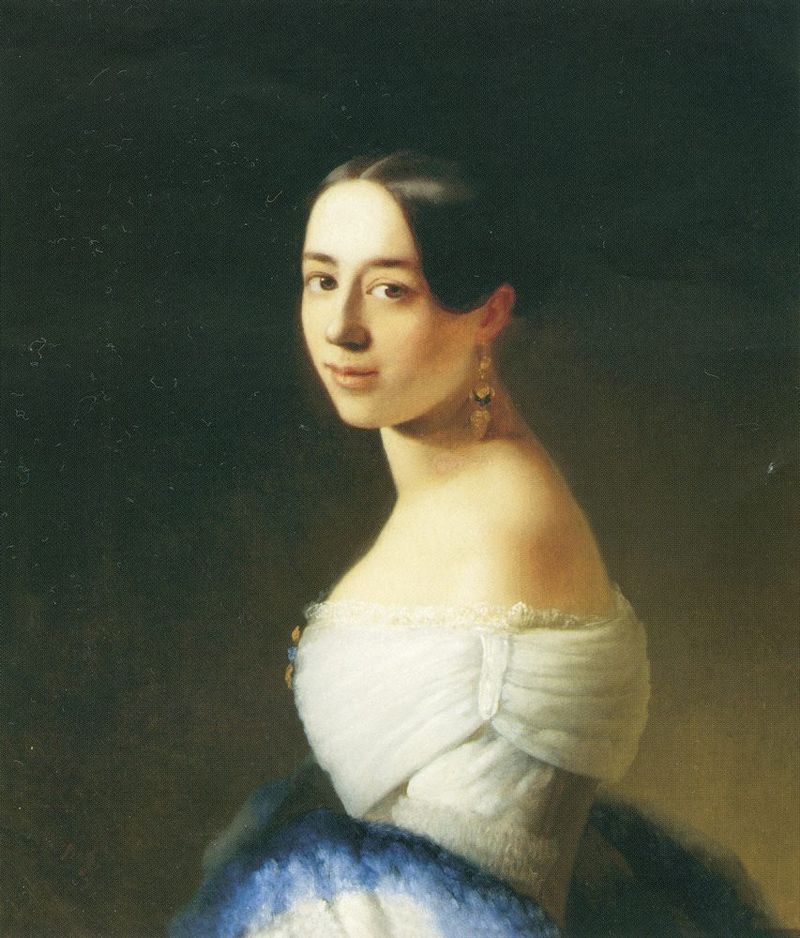
Pauline Viardot (1821-1910).
Carl Timoleon von Neff -
For attachment to the “damned gypsy”, his mother did not give him money for three years. During these years, his lifestyle did not bear much resemblance to the stereotype of the life of a “rich Russian” that had developed about him. In November 1845, he returned to Russia, and in January 1847, having learned about Viardot's tour in Germany, he left the country again: he went to Berlin, then to London, Paris, a tour of France and again to St. Petersburg. Without an official marriage, Turgenev lived in the Viardot family "on the edge of someone else's nest," as he himself said. Pauline Viardot raised Turgenev's illegitimate daughter. In the early 1860s, the Viardot family settled in Baden-Baden, and with them Turgenev ("Villa Tourgueneff"). Thanks to the Viardot family and Ivan Turgenev, their villa has become an interesting musical and artistic center. The war of 1870 forced the Viardot family to leave Germany and move to Paris, where the writer also moved.
Pauline Viardot
The true nature of the relationship between Pauline Viardot and Turgenev is still the subject of debate. There is an opinion that after Louis Viardot was paralyzed as a result of a stroke, Polina and Turgenev actually entered into a marital relationship. Louis Viardot was twenty years older than Polina, he died the same year as I. S. Turgenev
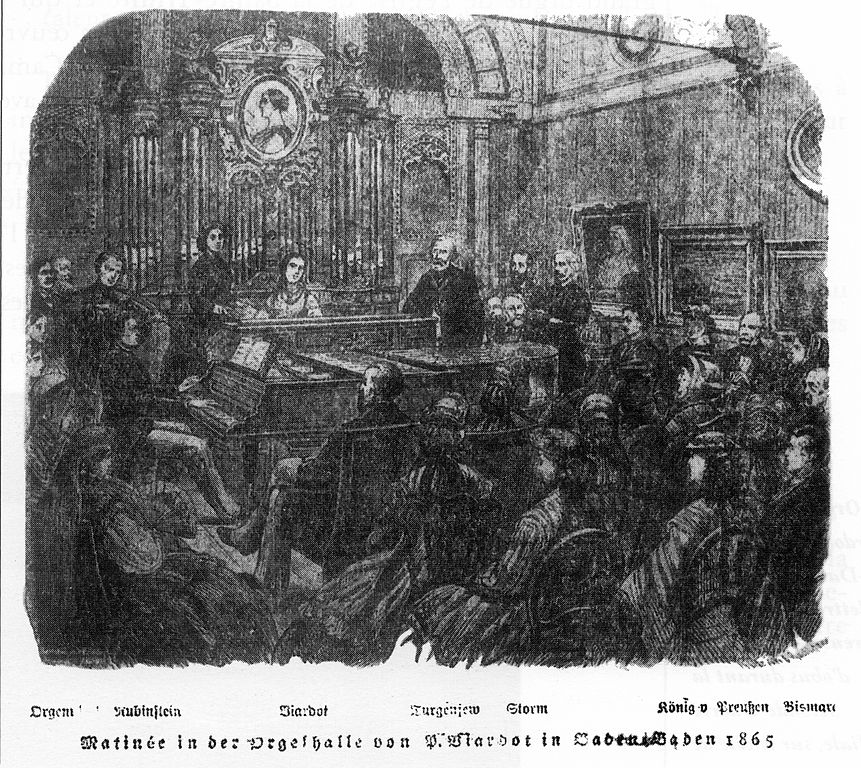
Pauline Viardot in Baden-Baden
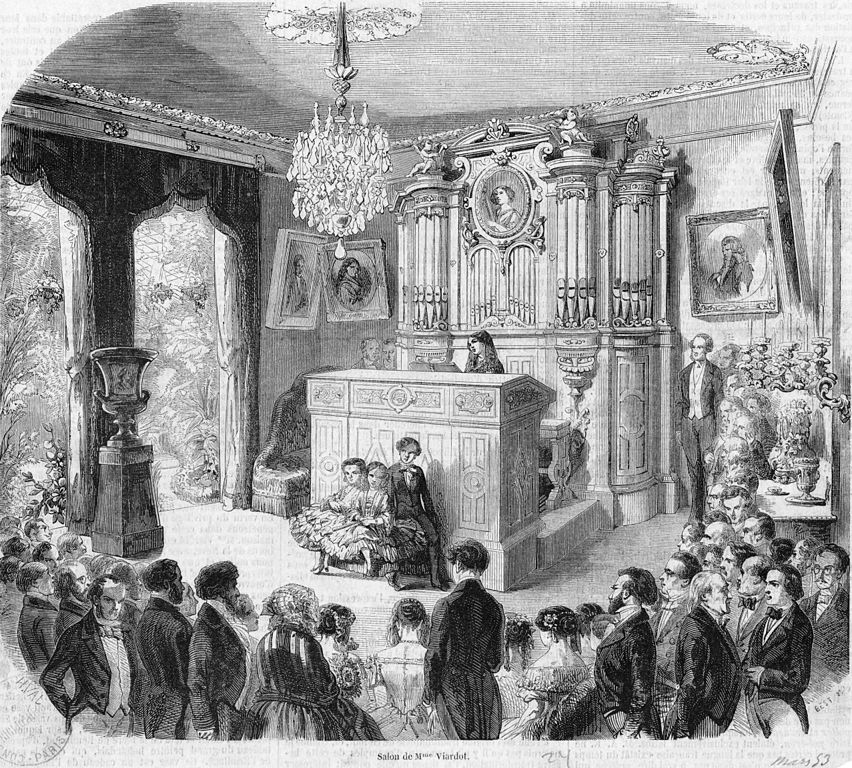
Paris Salon of Pauline Viardot
The last love of the writer was the actress of the Alexandrinsky Theater Maria Savina. Their meeting took place in 1879, when the young actress was 25 years old, and Turgenev was 61 years old. The actress at that time played the role of Verochka in Turgenev's play A Month in the Country. The role was so vividly played that the writer himself was amazed. After this performance, he went to the actress backstage with a large bouquet of roses and exclaimed: “Did I really write this Verochka?!"Ivan Turgenev fell in love with her, which he openly admitted. The rarity of their meetings was made up for by regular correspondence, which lasted four years. Despite Turgenev's sincere relationship, for Maria he was rather a good friend. She was going to marry another, but the marriage never took place. The marriage of Savina with Turgenev was also not destined to come true - the writer died in the circle of the Viardot family
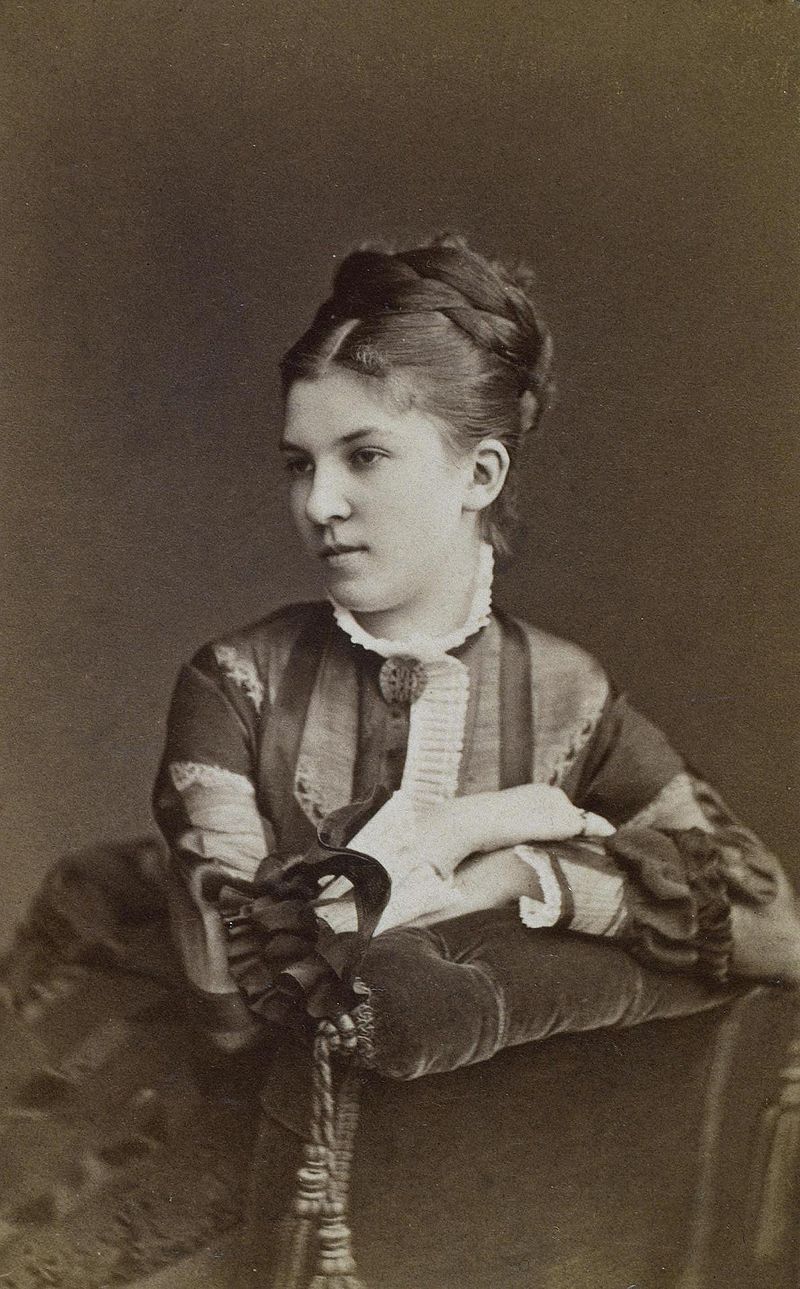
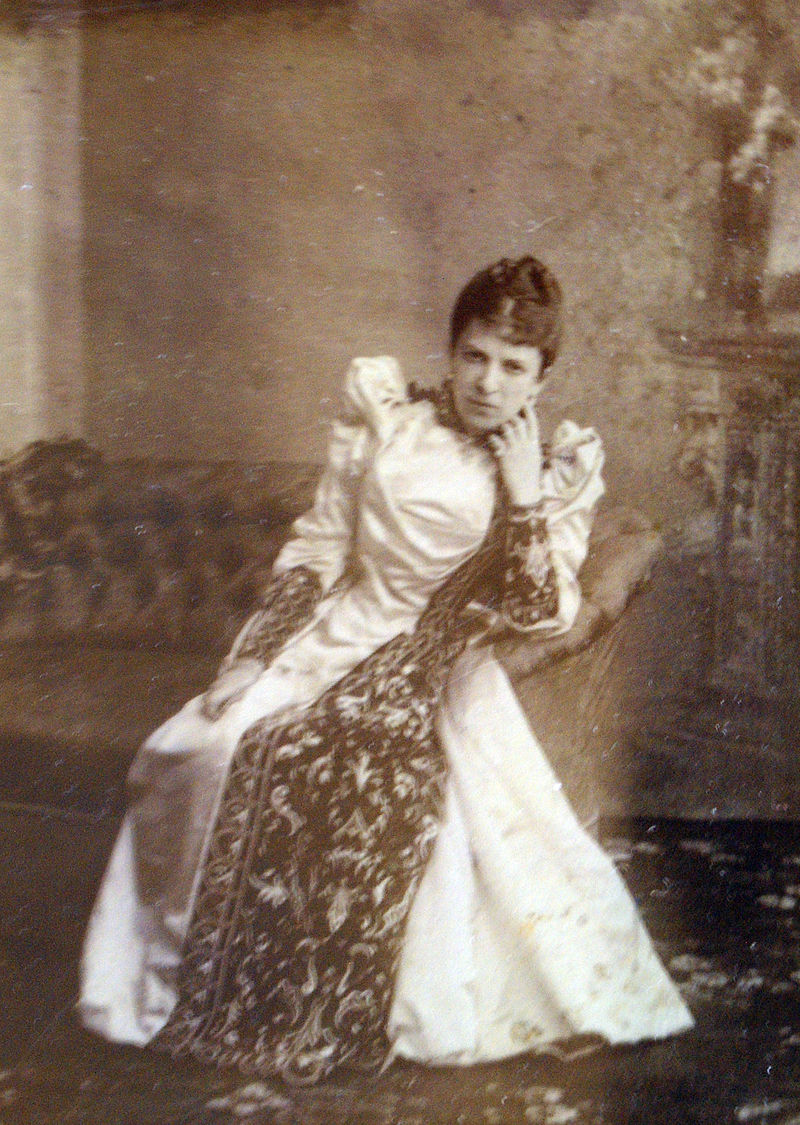
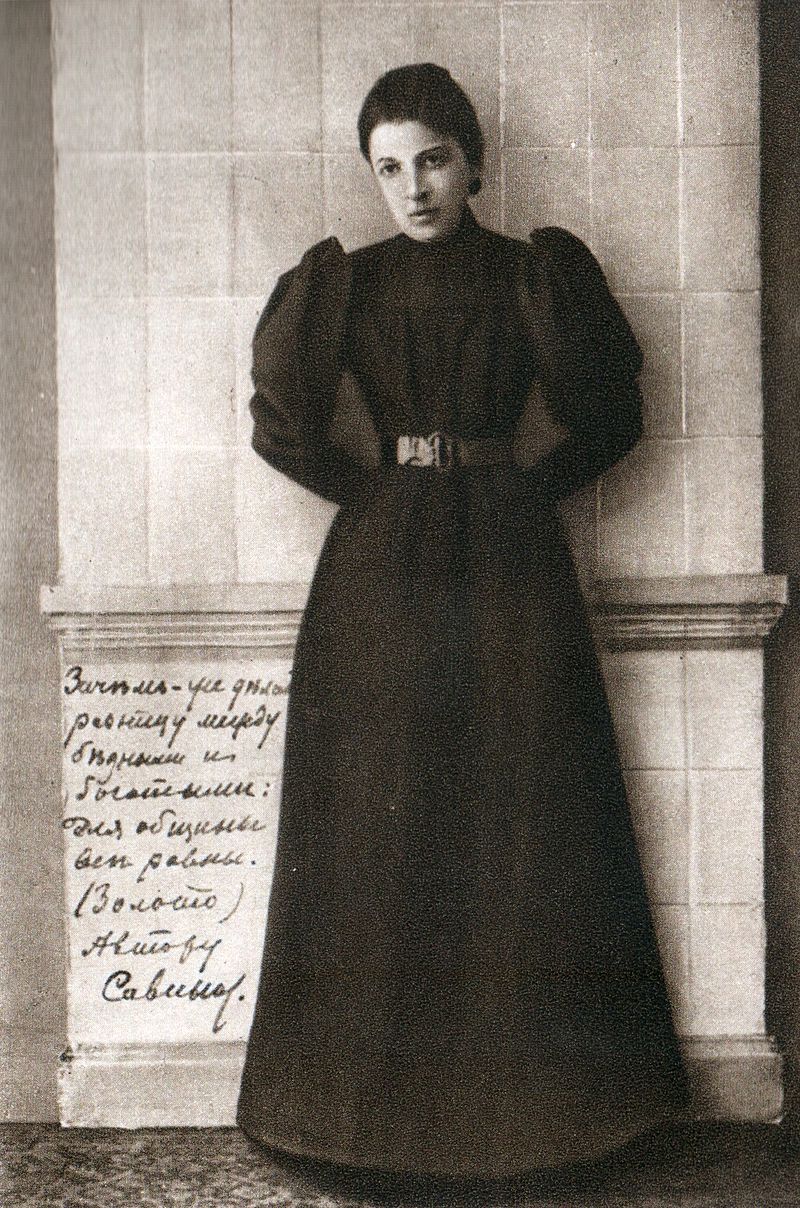
Maria Gavrilovna Savina
"Turgenev girls"
Turgenev's personal life was not entirely successful. Having lived for 38 years in close contact with the Viardot family, the writer felt deeply lonely. Under these conditions, Turgenev's image of love was formed, but love is not quite characteristic of his melancholy creative manner. There is almost no happy ending in his works, and the last chord is more often sad. But nevertheless, almost none of the Russian writers paid so much attention to the depiction of love, no one idealized a woman to such an extent as Ivan Turgenev.
The characters of the female characters in his works of the 1850s - 1880s - the images of whole, pure, selfless, morally strong heroines in total formed the literary phenomenon of the "Turgenev girl" - a typical heroine of his works. Such are Liza in the story "The Diary of a Superfluous Man", Natalya Lasunskaya in the novel "Rudin", Asya in the story of the same name, Vera in the story "Faust", Elizaveta Kalitina in the novel "The Noble Nest", Elena Stakhova in the novel "On the Eve", Marianna Sinetskaya in novel "Nov" and others.
Vasily Polenov. "Grandma's Garden", 1878
Offspring
Turgenev never got his own family. The writer's daughter from the seamstress Avdotya Ermolaevna Ivanova, Pelageya Ivanovna Turgeneva, in the marriage of Brewer (1842-1919), from the age of eight she was brought up in the family of Pauline Viardot in France, where Turgenev changed her name from Pelageya to Polina (Polinet, Paulinette), which seemed to him more harmonious. Ivan Sergeevich arrived in France only six years later, when his daughter was already fourteen. Polinet almost forgot Russian and spoke only French, which touched her father. At the same time, he was upset that the girl had a difficult relationship with Viardot herself. The girl was hostile to her father's beloved, and soon this led to the fact that the girl was sent to a private boarding school. When Turgenev next came to France, he took his daughter from the boarding house, and they settled together, and for Polinet a governess from England, Innis, was invited.
Pelageya Turgeneva (married Buer, 1842-1918), daughter of the writer Ivan Turgenev.
At the age of seventeen, Polinet met the young businessman Gaston Brewer (1835-1885), who made a good impression on Ivan Turgenev, and he agreed to marry his daughter. As a dowry, the father gave a considerable amount for those times - 150 thousand francs. The girl married Brewer, who soon went bankrupt, after which Polinet, with the assistance of her father, hid from her husband in Switzerland. Since Turgenev's heiress was Pauline Viardot, his daughter found herself in a difficult financial situation after his death. She died in 1919 at the age of 76 from cancer. The children of Polinet - Georges-Albert and Jeanne - had no descendants. Georges Albert died in 1924. Jeanne Brewer-Turgeneva never married; She lived by tutoring for a living, as she was fluent in five languages. She even dabbled in poetry, writing poetry in French. She died in 1952 at the age of 80, and with her the family branch of the Turgenevs along the line of Ivan Sergeevich broke off.
 “Lefty” - a summary of the work N
“Lefty” - a summary of the work N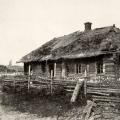 Turgenev, "Biryuk": a summary
Turgenev, "Biryuk": a summary Comedy A.N. Ostrovsky "Poverty is not a vice": a summary of the work
Comedy A.N. Ostrovsky "Poverty is not a vice": a summary of the work